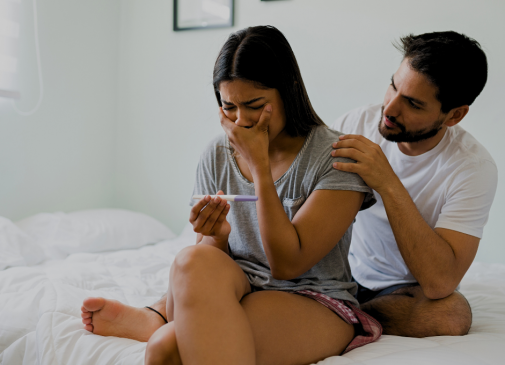
A new study published in the journal Diagnostics highlights the significant improvements in quality of life for women who underwent uterine artery embolization (UAE) for fibroids in an outpatient setting. This groundbreaking research, conducted by members of USA Fibroid Centers and USA Clinics Group, shows the benefits of UAE and its potential to reshape the future of fibroid care.
Understanding Uterine Fibroids
Uterine fibroids are noncancerous growths that develop in the uterus and can cause debilitating symptoms such as heavy menstrual bleeding, severe pelvic pain, bloating and frequent urination. Fibroids are a common condition, affecting up to 80% of women by age 50, and their impact on daily life can be severe.
Historically, many women have been left with limited treatment options, often being told that hysterectomy was their only choice. However, UAE, also known as uterine fibroid embolization (UFE), offers a minimally invasive alternative that effectively shrinks fibroids by blocking their blood supply.
Key Findings from the UAE Study
The comprehensive study provides critical data supporting UAE as a leading treatment option for fibroid patients. The findings include:
Symptom Relief After UAE:
- 96% of patients experienced reduced heavy menstrual bleeding
- 94% reported relief from pelvic pain and pressure-related symptoms
- 94% noticed a decrease in fatigue
- 92% experienced less frequent urination
Improved Quality of Life:
- 82% of patients saw improvements in daily activity levels
- 85% reported increased energy and better mood
- 71% experienced improved sexual function
- 86% has a significant increase in the general Quality of Life index
Proven Success in Outpatient Care
The study confirms that uterine artery embolization performed in outpatient facilities yields compelling evidence that UAE significantly improved the quality of life for women with fibroid disease. These findings reinforce the value of outpatient-based care, demonstrating that effective fibroid treatment doesn’t require hospitalization and can be safely and successfully delivered in specialty clinics.
Expanding Access to Care
One of the most notable findings from the study is that 39% of patients undergoing UAE had Medicaid insurance. Research indicates that women with Medicaid may face challenges accessing specialty care in hospital settings, including cost, provider availability. Outpatient settings offering UFE have the potential to reduce these barriers, thereby increasing access to minimally invasive treatment for underserved populations.
Consistency Through Standardized Care
The study reported the value of standardizing UAE procedures across outpatient centers contributed to reliable outcomes. Consistent protocols, according to the researchers, facilitated high-quality care delivery across different facilities, potentially enhancing the safety and efficiency of outpatient-based fibroid care.
The Future of Fibroid Care
This study’s findings contribute to the growing body of research on the benefits of UAE in outpatient settings. Further research and discussions within the healthcare community will be essential to determine the role of UAE in future fibroid care practices.
Get Involved
Empowerment and community are central to our mission. Women can actively participate by staying connected through our social media platforms, sharing their personal stories to inspire and offer hope to others facing similar challenges, and by advocating for every woman’s right to make informed decisions about their reproductive health. Together, we can create a supportive network and drive meaningful change.







